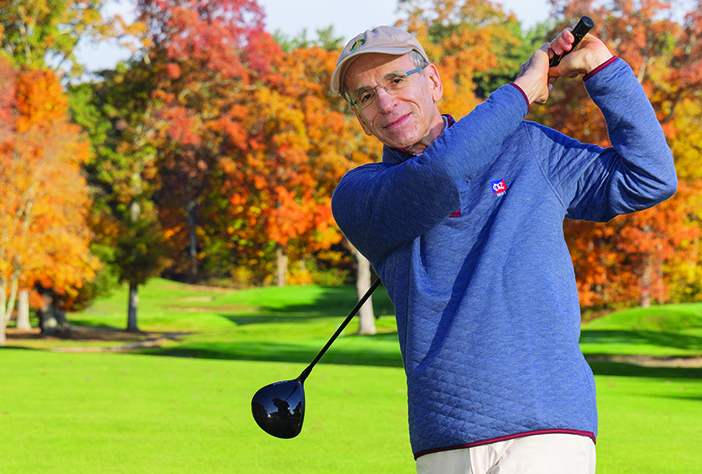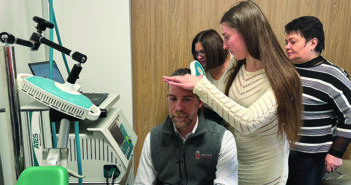On the links, success is all in your head.
It’s seldom difficult for your writer to become engrossed in a deep conversation about the game of golf, but when I lamented my lack of skill on the putting green to Richard Goldberg, MD, MS, he stopped me mid-sentence and pointed animatedly.
“That way of talking,” he said, “is why you’ll never get better.”
For Goldberg, a professor emeritus of psychiatry and human behavior, the mental side of the game, and not any single swing fault, is what holds many golfers back. In his book, Better Golf, Better Life, Goldberg formulates a set of deeply held principles for success on (and off) the golf course. Using a mix of Eastern philosophy, meditation techniques, and other fundamentals such as stressing the importance of a pre-shot routine, his psychological approach has golfers of all skill levels lining up for lessons of the mind, not the body.
“Golf is an exploration of who we are,” says the former psychiatrist-in-chief of Rhode Island Hospital and senior vice president of psychiatry and behavioral health at Lifespan. “We play golf to become better people, not just better golfers.”
Goldberg and some friends started the Dalai Lama Golf Association many years ago—a reference to Caddyshack—but beyond the humor, Goldberg began to see true lessons in the movie’s references to the mental side of the game.
“Great golf emerges from an integrated and balanced orchestration of multiple brain functions,” he writes. “Emotional and physical overreactions on the golf course disrupt the balance that make it possible for us to perform at our best.”
BEATS BY DR. RICH
Goldberg steers clear of swing tips in his book, but there is one technical part of the game he swears by—putting tempo. He advises using a metronome, saying 74 beats per minute is a great place to start for an amateur.
THE MINDFUL GOLFER
Goldberg’s book features chapters on parts of the game every golfer knows all too well, such as “I Just Don’t Want to Be Here Anymore”—the inevitable feeling of despair when the round is slipping away.
NO MORE NO
For golfers who say things like “don’t go right” or “don’t come up short,” Goldberg writes, “Here is an important principle of neuropsychology: The brain does not hear ‘no.’”
BUFFALO SOLDIER
Goldberg picked up golf in high school, but it was his time in medical school at SUNY-Buffalo where he fell in love with the game, playing a course that was once the host of the 1912 US Open.




